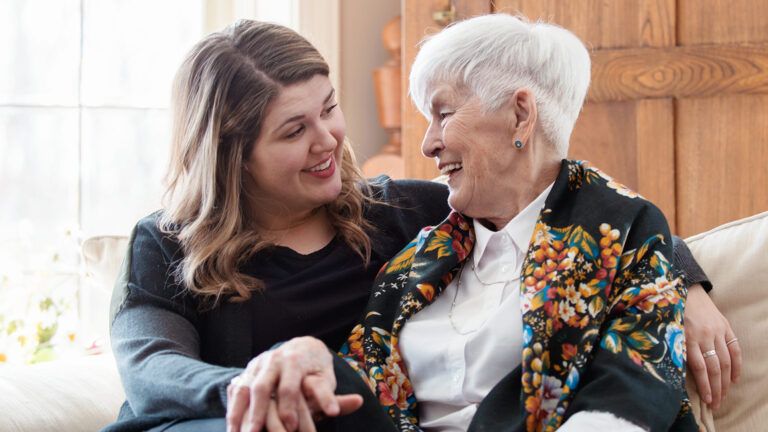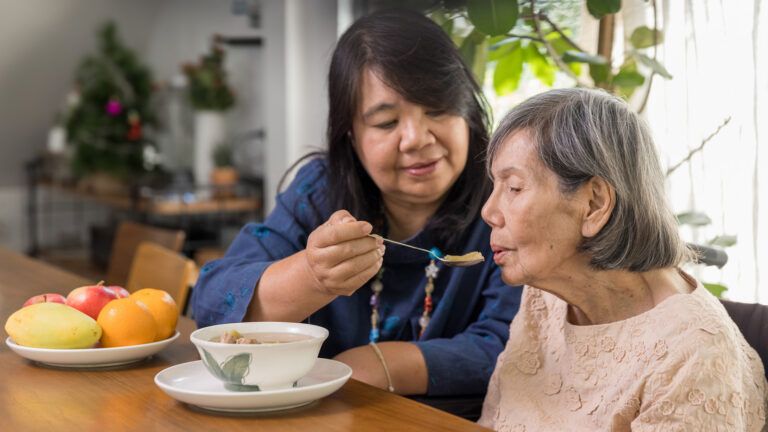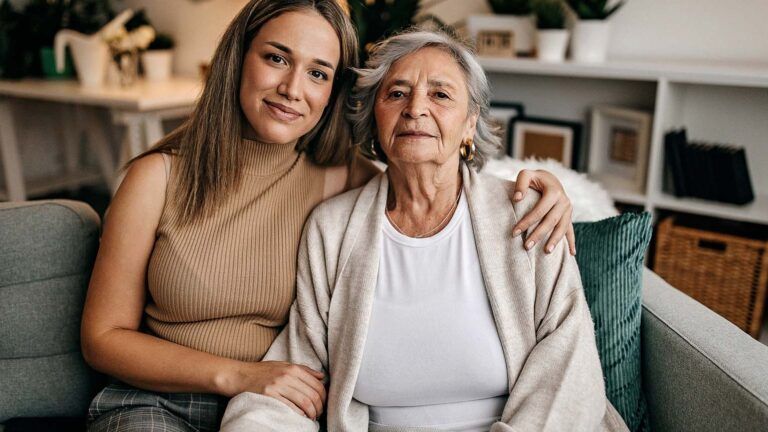Who is your mom and what makes her happy? Any good Mother’s Day plan involves these questions.
But when your mom has Alzheimer’s, it can be no small challenge to come up with answers. Still, it’s crucial to consider these questions—and to open yourself to very real and present-day answers—in order to give your mom a Mother’s Day celebration that truly meets her needs, according to a physician who walked the walk with her own mom.
“Ask yourself, ‘Who is she?’ I don’t want to say, ‘Who was she?’ but, ‘Who is she?’ said Dr. Cheryl Woodson, a geriatrician, eldercare consultant, speaker and author who navigated her mother’s 10-year journey with Alzheimer’s.
“Inside there somewhere is that same person. Somebody who wasn’t a big party person, or only wanted a couple of her really close friends around, is not going to become one because you want to do that,” Dr. Woodson said. “So, you want to connect with what she might enjoy, not something you wish she could enjoy today. But, even if what you used to plan some was some huge, chaotic dinner, you can’t do that. You can’t bring her into your world. You have to go into her world.”
Dr. Woodson shared the following tips to help plan the best Mother’s Day possible for a mother who lives with memory loss:
Pare down
“If you’re trying to do something big that’s unfamiliar to her, ask yourself who you’re doing it for. Are you doing it for her or are you doing it to try to revise history and make things the way they were? Because they’re not. Do a small something in her own environment. Try to keep the spirit of the holiday without the details. The idea is to bring the love around that person without stressing their capabilities and then disappointing yourself. You can still do the big hats, if that was something that was important to her, or flowers or certain foods you made, but make it realistic for what her level of ability is.”
Keep it familiar
“People with dementia can get agitated when things are unfamiliar because what their brain is saying is, ‘I don’t understand what this is. I want to be where I understand what this is, and that’s home.’ Go very small and very simple. So, maybe you have a few people on Saturday and another few people on Sunday. If these relationships are on-going and she sees these people all the time, that won’t be a problem. Now, in the days of Zoom and videos, it may be better to film greetings, and then you show as much of it as that person can tolerate. You can put a pause on and play it again or play it later, so that she doesn’t get overwhelmed.”
Expect the unexpected
“You have to be flexible because what if she doesn’t want to get dressed that day? It’s okay. And you don’t want to try to force relationship if it’s agitating her. Have somebody to maybe go into another room with Mom and watch her favorite soap opera or her game show, or whatever. There needs to be somebody available who’s there not to be part of the celebration if she needs it, and that doesn’t have to be the caregiver. That may be a day, if you have the resources, to hire somebody.”
Make gifts about her
“Are the gifts important to you or are they important to her? I would do sensory things rather than ‘stuff’. When my mother didn’t know who she was, if you put on music, she could dance—you know, big band swing era. Did your mother enjoy music? Did your mother enjoy art? Is your mother’s favorite movie Casablanca?”
Put aside time for yourself
“This is the time, I think, to circle your wagons. Do not be afraid to tell your kids what you need from them. Maybe you can have your Mother’s Day on a different day, like the Sunday before or the Saturday after, so that you’re not competing with your mom, or you’re not focused so much on making her Mother’s Day perfect that you ruin yours.
“You also need to plan regular respite for yourself. Don’t wait until your tongue is hanging out. Plan something for yourself so you have something to look forward to. Whether you hire a respite worker or convince one of your family members to give you an afternoon off, it has to be regular—next Thursday I’m going to go get my nails done, or whatever. Area Agencies on Aging are a good resource for support. Churches and many other houses of worship have also stepped into this with caregiver and wellness ministries, where you may be able to have somebody who will sit with your loved one for an evening or afternoon so that you can go to a movie with one of your friends. Not somebody who’s going to do dressing changes or pass medications, but someone who will be there to share a meal. You will be a much better caregiver if you put yourself up on your to-do list a little higher.”
Let yourself grieve
“Any loss, any change in routine is a grieving. Acknowledge that for yourself—this hurts. Have support with that, whether it is a pastor or a counselor or a good friend or someplace safe where you can talk about how badly this bothers you. And then you go on and do it. It’s okay to say that this is hard and it’s not the way that you want it to be. It’s not okay to try to make it be what it was. That’s not good for you, that’s not good for her. On Mother’s Day, if she liked flowers, bring flowers. But don’t be upset if she doesn’t recognize what flowers are. It’s not a rejection of you. Her brain is broken. It’s like, ‘Woops! Okay, plan B. Next.’”






